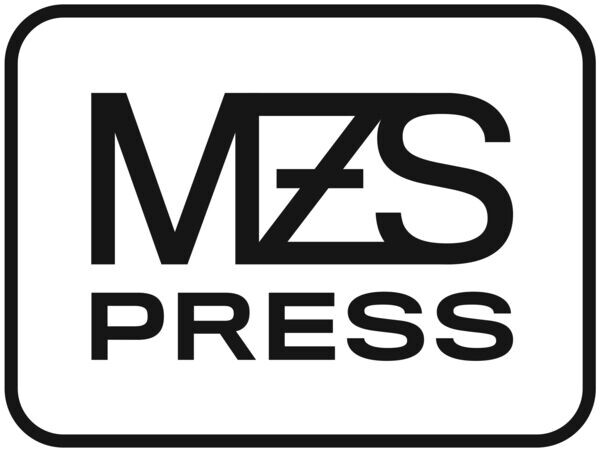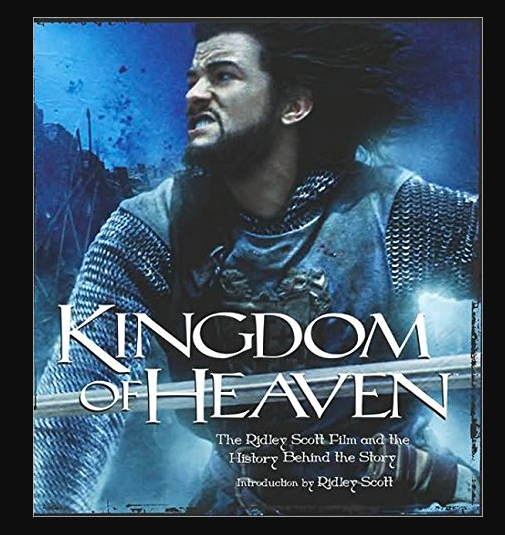

The Arts Bookstore of the Internet
Created by Matt Zoller Seitz
Directed by Judith Carter
“If you only read the books that everyone else is reading, you can only think what everyone else is thinking.”
Haruki Murakami
Photo by Justin Campbell on Unsplash
Kingdom of Heaven: (Paperback, NEW)
With films like Gladiator, Blade Runner, and Black Hawk Down, director Ridley Scott has shown his mastery of cinematic storytelling that is epic in dimension but with a deeply personal core. In Kingdom of Heaven, he turns to the Crusades—that world-shaping 200-year collision between Europe and the East—to frame the tale of a young Frenchman who defies all odds to become a knight, then lives out what that glorious title really means. "I'd always wanted to make a movie about knights and medieval times, the Crusades especially," says Scott. "Historically, the knight—like the cowboy or the policeman—has given us great opportunities to tell stories about a hero."
With the cry "God wills it!" Pope Urban II in 1095 urged Christian Europe into a frenzy to reclaim the holy city of Jerusalem, conquered by Muslim armies that swept through the Middle East in the 7th century. Thousands answered the call, from kings to peasants, and in the ensuing waves of war ancient cities fell to bloody sieges, Christian kingdoms were founded in the Holy Land, and unspeakable atrocities were committed on both sides. Between the Second and Third Crusades, however, two visionary leaders—King Baldwin IV of Jerusalem and the Saracen general Saladin—forged a short-lived peace amid the carnage. Drawn into this immense drama is the young blacksmith Balian (Orlando Bloom). Fleeing his village under a death sentence, and fleeing his own demons as well, Balian joins forces with a great knight, Godfrey of Ibelin (Liam Neeson), who swears him to serve King Baldwin and up-hold the truce—that fragile "kingdom of heaven." On reaching the Holy Land, Balian falls under the spell of the king's sister, Sibylla (Eva Green), and becomes embroiled in a struggle for the kingdom's soul, as the dying king is assailed by extremists bent on war. Ultimately, Balian must choose between his love and his sense of knightly honor. And when Jerusalem faces its greatest peril, he must use all his wits and courage to defend it against staggering odds.
Scott and his production team scale new heights in creating worlds on film: building vast sets on locations in Morocco and Spain, peopling them with international stars and thousands of extras, enhancing filmed action with state-of-the-art effects. Scenes of medieval warfare, breathtaking in scale and realism, feature weapons and machines that were carefully researched and built for real. This splendid companion book, illustrated with more than 200 photos, drawings, and Scott's own storyboards, documents this landmark production behind the scenes and before the cameras. But it also delves into the details of storycrafting that give Kingdom of Heaven its solid historical grounding, and includes a lively primer on the Crusades that will expand readers' appreciation of both the film and the history behind it. With more than 200 photographs and illustrations.
From Publishers Weekly
With a scheduled release date set to accompany that of Ridley Scott's new film, Kingdom of Heaven, this behind-the-scenes book explores the history of the Crusades, the era of the movie's inspiration. The film follows Balian, "a blacksmith turned Crusader," during a rare and brief peace-time among the Christian and Muslim cultures, between the Second and Third Crusades. As the book reveals, the idea for the film began shortly after the September 11th attacks, but Scott argues in his introduction that the film is not meant to "moralize or propagandize." Later in the volume, screenwriter William Monahan reveals his intent: "The two civilizations, arguably, being again at war, I was interested in examining a time when there was a period of...if not peace, then accommodation-when the Muslim world and 'Christendom' were at an equal strength." Aside from discussion of the film's subject matter, the book explains other details most moviegoers may not notice. For example, although much of the story takes place in the Near East, the filmmakers opted for landscapes in Spain and Morocco, since many of the original locations are either in ruins or have become too modernized to be useful. Also, many of the film's characters are a mixture of fictional heroes and real historical figures. This promotional picture book includes impressive photos of the star cast, including Jeremy Irons and Liam Neeson, and of the elaborate film sets. But movie buffs may appreciate more the generous inclusion of architectural concept drawings and set models, the annotated script pages and storyboards, or even the detailed costume designs.
- Publisher : Newmarket Press; 0 edition (April 22, 2005)
- Language : English
- Hardcover : 176 pages
- ISBN-10 : 155704662X
- ISBN-13 : 978-1557046628
- Item Weight : 2.04 pounds
- Dimensions : 9.5 x 0.75 x 10.5 inches
All copies are new, but guaranteed in good condition.
About Our Store
MZS.Press is the online arts bookstore founded by author, critic, and filmmaker Matt Zoller Seitz and Directed by Judith Carter. It offers new, used, signed, collectible, and rare books on film, TV, music, photography, and the visual arts. The store was launched in 2019 on a different platform and has expanded to incorporate arts books published by MZSPress's private imprint: titles currently include Seitz's The Deadwood Bible: A Lie Agreed Upon and Dreams of Deadwood, about the HBO Western, and Walter Chaw's A Walter Hill Film.
Our deepest wish is to promote, encourage, and distribute work by small presses, academic presses, and individuals. Extraordinary work tends to get swallowed up on giant platforms like Amazon and Barnes & Noble. The titles featured here are personally selected by a group of curators and advisors, including Seitz and an array of critics, artists, journalists, educators, publishers, and arts mavens who are known for their ability to suss out what Seitz's jazz musician dad liked to call "the good sh*t."
In Honor of the greatest auteur of our time, Judith is using one of her favorite quotes by him.
"Every day, once a day, give yourself a present"
David Lynch (January 20, 1946-January 15, 2025)

About the Partners

Matt Zoller Seitz
Critic, Author, Filmmaker, MZS Press Creator
Matt Zoller Seitz is the Editor at Large and film critic of RogerEbert.com; Features Writer for New York Magazine and Vulture.com, Contributing Writer for D Magazine and Texas Highways as well as finalist for the Pulitzer Prize in criticism. His writing on film and TV has appeared in Sight and Sound, The New York Times, Salon.com, The New Republic and Rolling Stone. Seitz is the founder and original editor of the influential film blog The House Next Door, now a part of Slant Magazine.
Seitz has written, narrated, edited or produced over a hundred hours’ worth of video essays about cinema history and style for The Museum of the Moving Image, Salon.com and Vulture, among other outlets such as Texas Highways and AARP. His five-part 2009 video essay Wes Anderson: The Substance of Style was spun off into the hardcover book The Wes Anderson Collection. This book and its follow-up, The Wes Anderson Collection: Grand Budapest Hotel were New York Times bestsellers.
Other Seitz books include the New York Times bestsellers The Sopranos Sessions and Mad Men Carousel; TV (The Book), The Deadwood Bible: A Lie Agreed Upon, The Wes Anderson Collection: The French Dispatch and the new The Wes Anderson Collection: Asteroid City. He is also an interviewer, moderator, and film programmer who has curated and hosted film and TV presentations for the Museum of the Moving Image, IFC Center, San Francisco's Roxie Cinema, and other venues. In October 2024 he brought the legendary filmmaker Oliver Stone back to Dallas for a historic return to the city and the Texas Theatre, considered the biggest film event of Dallas in 2024 by Dallas Observer!
Judith Carter was in the Upscale and Luxury Hospitality Industry for most of her life. In 2004 she had a beautiful baby boy with Special Needs and put the pause on her career until 2017 to dedicate herself to him and then others, assisting and volunteering as a legal advocate ensuring the best medical care, evaluations and educations for Special Needs children and their families.
Matt and Judith were family friends for over 20 years. She was there with her family in support when his wife Jen passed away suddenly in 2006. Then just 6 weeks later while Matt was in Dallas; he and his Father, Dave, and Step-Mother, Genie, were there as support, when Judith was alone and her son received the first of many diagnoses that changed the trajectory of their lives. So it made sense in the turbulent year of 2020, Matt asked Judith to take over running the online store that has become MZS.press. The rest as they say is, "Their"-story.
